by Anna Konstorum
When the team at Her Math Story reached out to me to share my story, I was honored for the opportunity. I wrote about my non-linear path through biology, biomathematics, and data science. I also wrote about my early inspiration to do mathematics, which came in part from the time I spent solving mathematical problems with my grandmother during my childhood. After I submitted my story, I thought more about the purpose of Her Maths Story, and about my grandmother. The stories shared by the participants of Her Maths Story are meant to inspire, and to show women the many paths taken by those that came before them, and to also give voice to stories that may not have been told otherwise. And, I thought, the woman who most inspired me to do math has a story herself worth sharing, which I am once again honored to do in these spaces.
My grandmother was a high-school mathematics teacher and eventually vice principal for the majority of her career. She was a kind, warm woman, who shared her love of math with me through fun mathematics games and activities, creating a space where math was something to look forward to and enjoy in good company. Yet, her kind and gentle nature belied an incredibly difficult life, her family lived through Stalin’s Great Purge and the Holocaust, and had to grapple with rising anti-semitism in Stalin’s post-war Soviet Union. Through all this, she was able to pass on to her children and grandchildren a gratitude and appreciation for the many beautiful things life has to offer, and part of that inheritance that I am incredibly grateful for was the love of mathematics that she shared with me. I share her story here in hope to inspire readers to see the beauty of what they are working towards, whether in mathematics or elsewhere, in spite of the difficulties we all face. I want to share the richness of the inheritance she left me.
My grandmother, Innessa (Inna) Bashneva, was born in 1923 in Minsk, Belarus, or what was then the ‘Byelorussian Soviet Socialist Republic’, only recently born itself after the Russian Revolution and ensuing civil war. She came from a Jewish family, indeed, her father’s original last name has been Rutgauz, but as a young revolutionary, his codename had been ‘Bashnev’, which means turret in Russian. He eventually changed his last name to this, a not uncommon practice at the time. By the time Inna was born, her family had managed to find stability in the new regime, with her father working for the local government and her mother staying at home to raise her.
Everything changed during what became known as Stalin’s Great Purge in 1937-1938, where in his quest to consolidate power, Stalin ordered the deportation, imprisonment, or execution of real or suspected rivals. One night in 1937, with only the children at home, the secret police came to take my great-grandfather away, the family found out later that he had been shot. Immediately after, her mother Esther went to stay with friends for her safety, and 14 year-old Inna had to care for her brother for several months while her mother was in hiding. When Esther returned, she went back to work as a nurse to support herself and her children. The family was branded as ‘vragi naroda’ (enemy of the people), which would make it more difficult to obtain a good education, jobs, or healthcare. Such families were shunned out of fear of association, Inna had many friends in school who had also been branded as such, and they had to rely on each other for comfort and friendship.

I will pause my story to explain that she never spoke about these, and ensuing, events with me, they were shared with me by my father. But if I calculate correctly, it must have been during this tumultuous time, at the very latest, that her love for math must have been born, for in a few years time, and under very difficult circumstances, she would make the choice that would lead her to spend the rest of her life doing and teaching mathematics.
In late spring of 1941, my grandmother attended her high school dance with other students to celebrate the end of the school year, and of their high school education. The next day, the Germans invaded, and the family had to flee. Her younger brother was in a summer camp at the time, and they did not see him, or know of his whereabouts until after the war. They fled first by foot, then by train, and ended up in the town of Biysk in central Russia, located 4,500 kilometers east of Minsk.
Although my grandmother was now a refugee from the war, she was also still a young, ambitious, and intelligent woman who had just finished high school. She and her mother would spend the next four years in Biysk, and Inna enrolled in the Biysk Teachers Institute (which is now a University) to study mathematics education. When the war ended in 1945, the family returned to Minsk, where my great-grandmother and her sisters, whose husbands had also fallen victim to the Great Purge, pooled their resources together to build a house for themselves and all their children. Inna, upon her return, enrolled in the Belarusian State University to continue her education in mathematical pedagogy. Gregory Konstorum, a friend who had been at their high school dance, had made it back from the front only in 1946 as he had been recovering from injuries he had sustained during the war. When he returned, he found that he had lost most of his family to the German occupation. He and my grandmother were reacquainted, and married shortly thereafter.
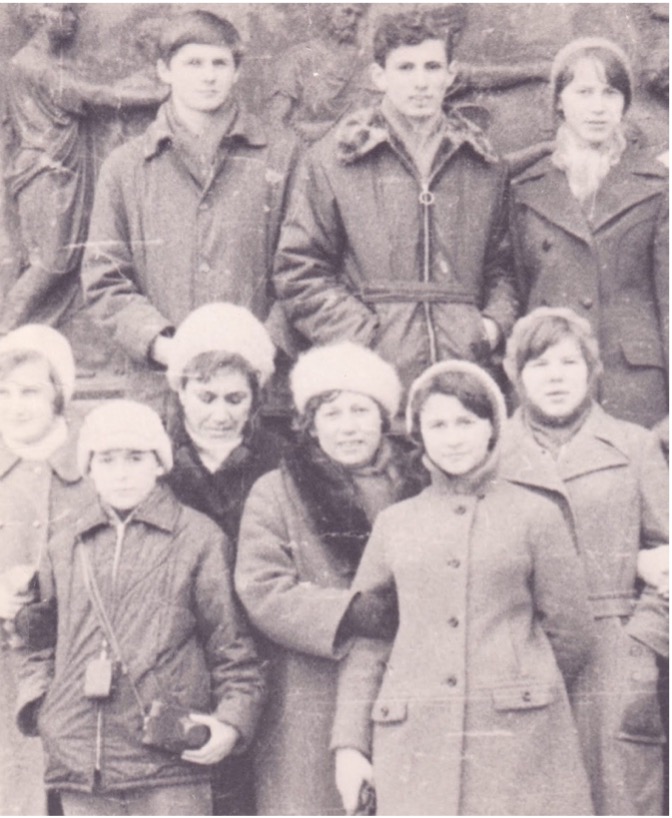
After Inna graduated from University, she became a high school mathematics teacher, eventually rising to the role of vice principal. In addition to teaching classes in algebra, geometry, and calculus, she also taught more advanced students elements of probability theory and programming, as well as helped to prepare them for mathematics competitions and to take entry exams for some of the top technical universities in the U.S.S.R. I once asked my father if she ever considered furthering her own education or doing research in mathematics. I remember a pause, and then a reminder that her family were still ‘vragi naroda’, that she was lucky to have had such a good education and a good job, especially as my grandfather struggled to find work after studying for a law degree due to another Stalinist clampdown, this time on Jewish intellectuals. I understood.
She was beloved as a teacher and a vice principal. Long after her retirement, she would correspond regularly with several former students by mail. She was known for her kindness, her generosity, and her goodwill. Upon her retirement after almost 40 years of teaching mathematics, she focused all her energy on helping her sons with their young families (I had been born just a year earlier).
In the early 1990s, my parents and I immigrated to the United States. It was a difficult and risky process, and yet almost immediately after we arrived, my father started laying the groundwork for Inna and Esther, who were still in Minsk, to join us in our new home. In the meantime, I was struggling. The long immigration process left me feeling uprooted and confused by all the changes, which slowed down my progress in learning English, and in making new friends. I didn’t fully comprehend the geopolitical forces that led my family to make this great leap in order to give me the chance for a better future in the U.S. My parents at the time were working hard to get a foothold themselves into this new world, and while I didn’t want to make things harder for them by acting out, seeing their challenges may also have prevented me from reaching out to them for more support.
About three years after we moved, Esther and Inna were finally able to join us, and they moved in with us. I watched in amazement as my grandmother, approaching her 70th birthday, leaned into her new surroundings, and began to learn everything she could about her new world, taking me with her in the process. She would listen to the radio for hours working to pick up the nuances of the English language. Whenever we went to the store, she would talk with the cashier, practicing her newly learned language skills. She embraced with open arms what I was so determined to reject.
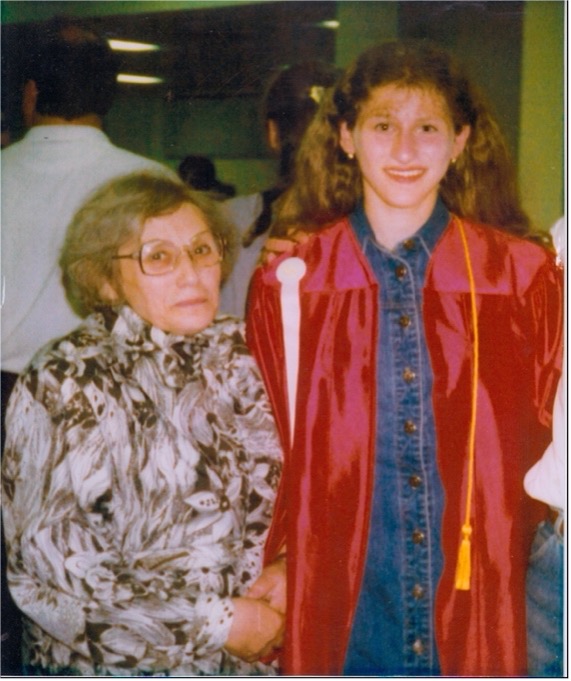
And then, there was the math. Possibly readers will think of a stereotype of an Eastern European mathematics teacher, drilling her sole pupil to the pinnacle of mathematical achievement. That was not her though, she understood that was not what I needed. Instead we would pick out math games and puzzles at specialized stores that we could work on together at home. Back at the house, we would sit on the floor, unpack our new purchases, and play. I recall that she would only converse with me in English while we worked through the problems in order to also strengthen my language skills, even though it was more difficult for her. While I no longer remember the specific problems we worked through, I do remember the feeling of joy, peace, and challenge as we made our way through the puzzles. I remember my anxiety falling away in those sessions, replaced by a focus and engagement with the problems.
My grandmother passed away when I was 14 years old, after a long battle with a cancer that returned after a first diagnosis in the former U.S.S.R. As per her character, throughout this time, she maintained a kind and graceful disposition. As if the cancer, just like the Germans and the Soviets, was unable to change or quench her generous and good spirit. In the four years that she had lived with us, I had transformed from a cynical young girl to an Honors student with many prospects and dreams for the future. Her role in that transformation was vital.
Recently, I have begun to think anew about the time Inna spent studying mathematics in Byisk, as war was raging all over Europe and in her home country. I wonder if during those unimaginably dark times, she found respite in the beauty and joy of studying mathematics. That she found something that she could do, enjoy and share, and that would help guide her way forward. And then many, many years later, when she found her own granddaughter in need of a ballast, she gave her the gift she had so much needed and received in those times.
Although my career in applied mathematics is a journey that has had many highs and lows, I find that seeking out the joy in my work helps to center and focus my thoughts and priorities – it is as if my grandmother is still reminding me to stay with the beauty and challenge, that it can help to guide my way forward. And for that gift, I am forever grateful.



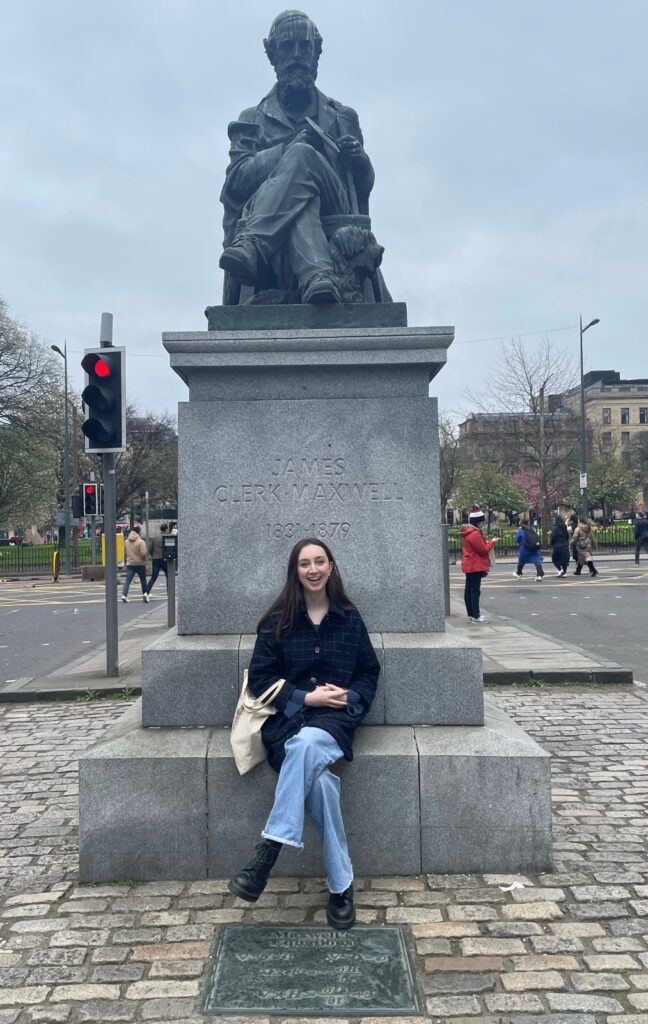
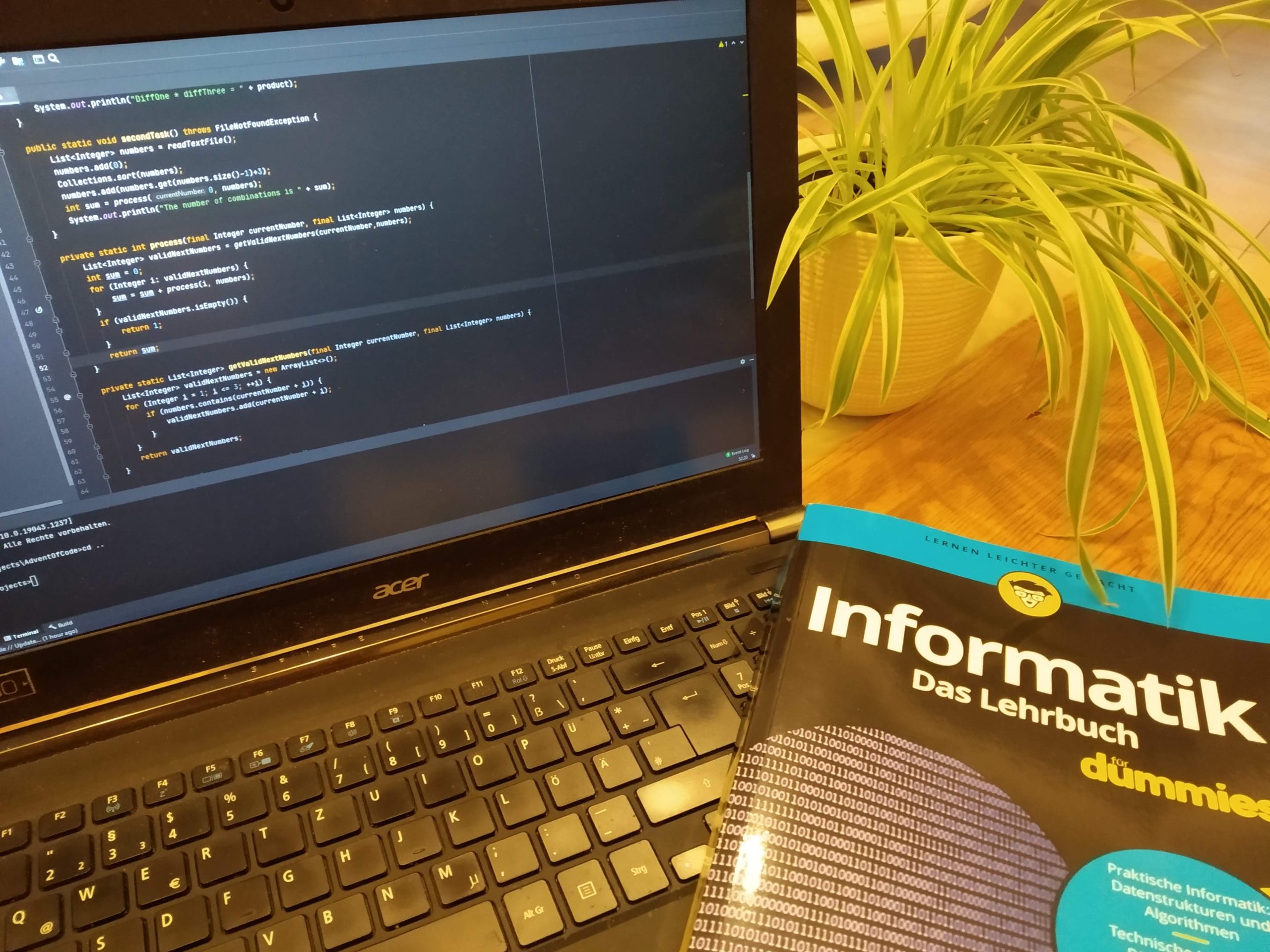



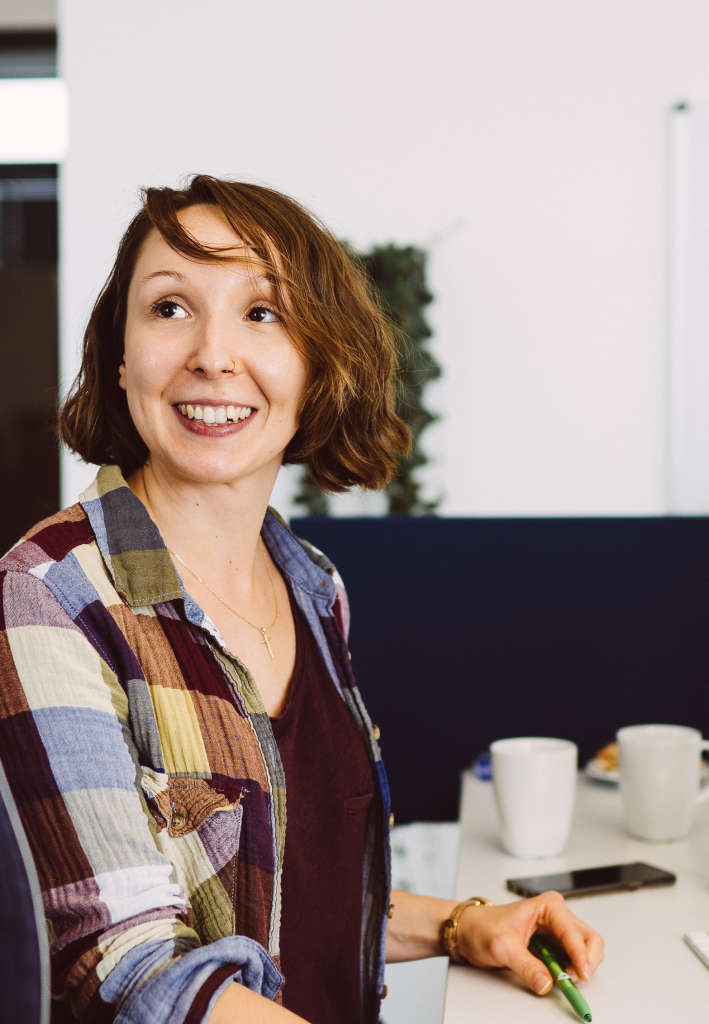
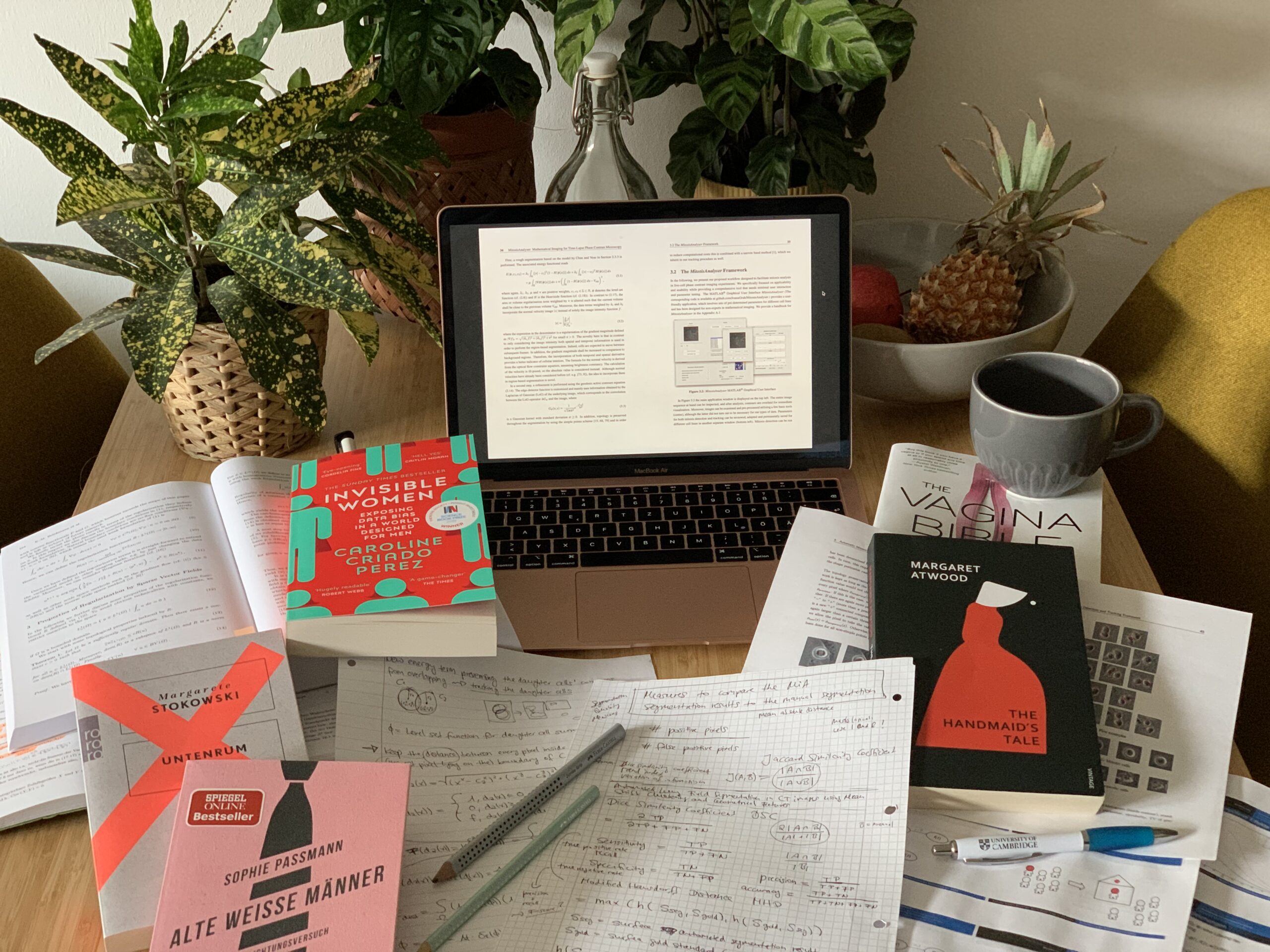
Recent Comments